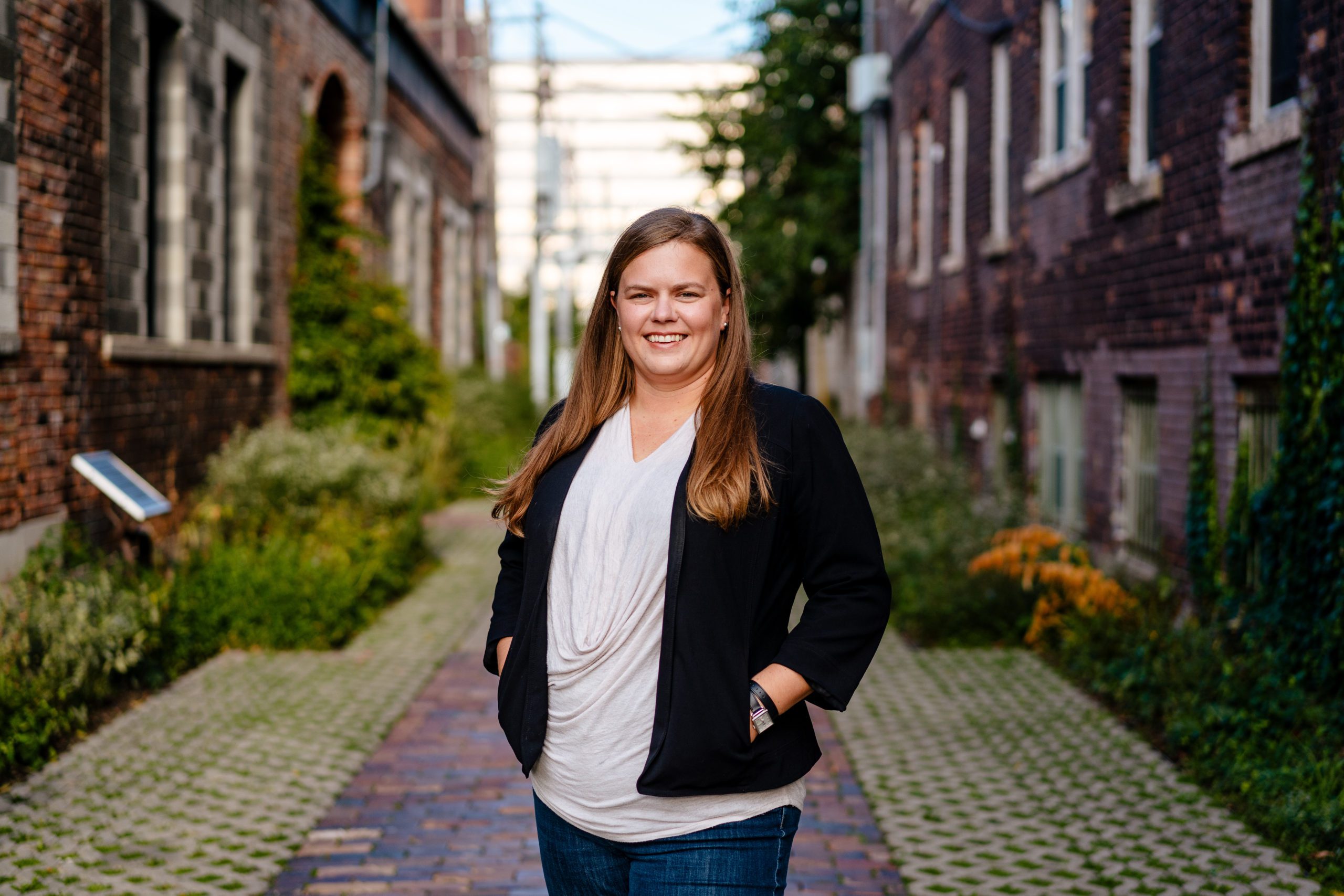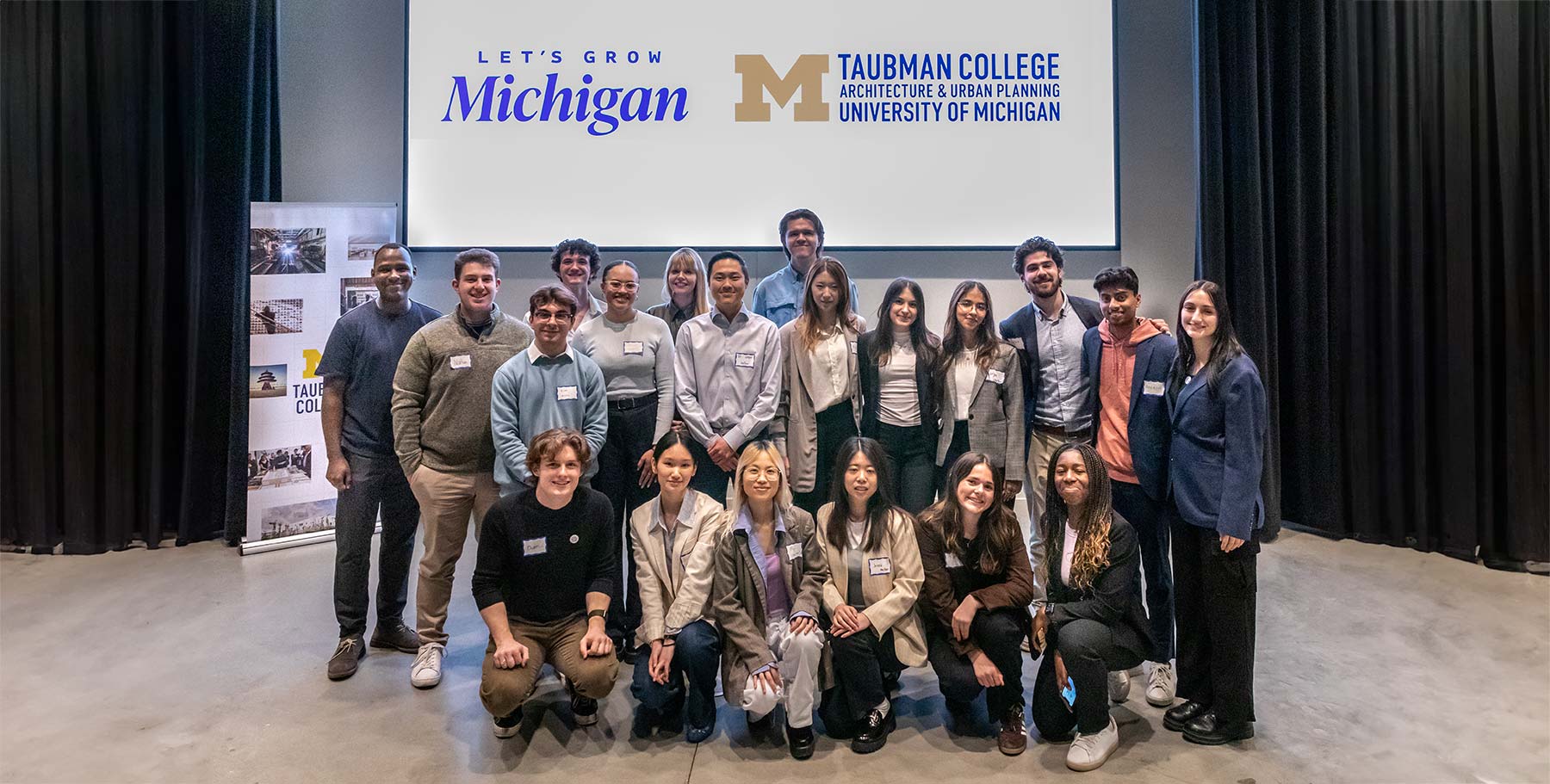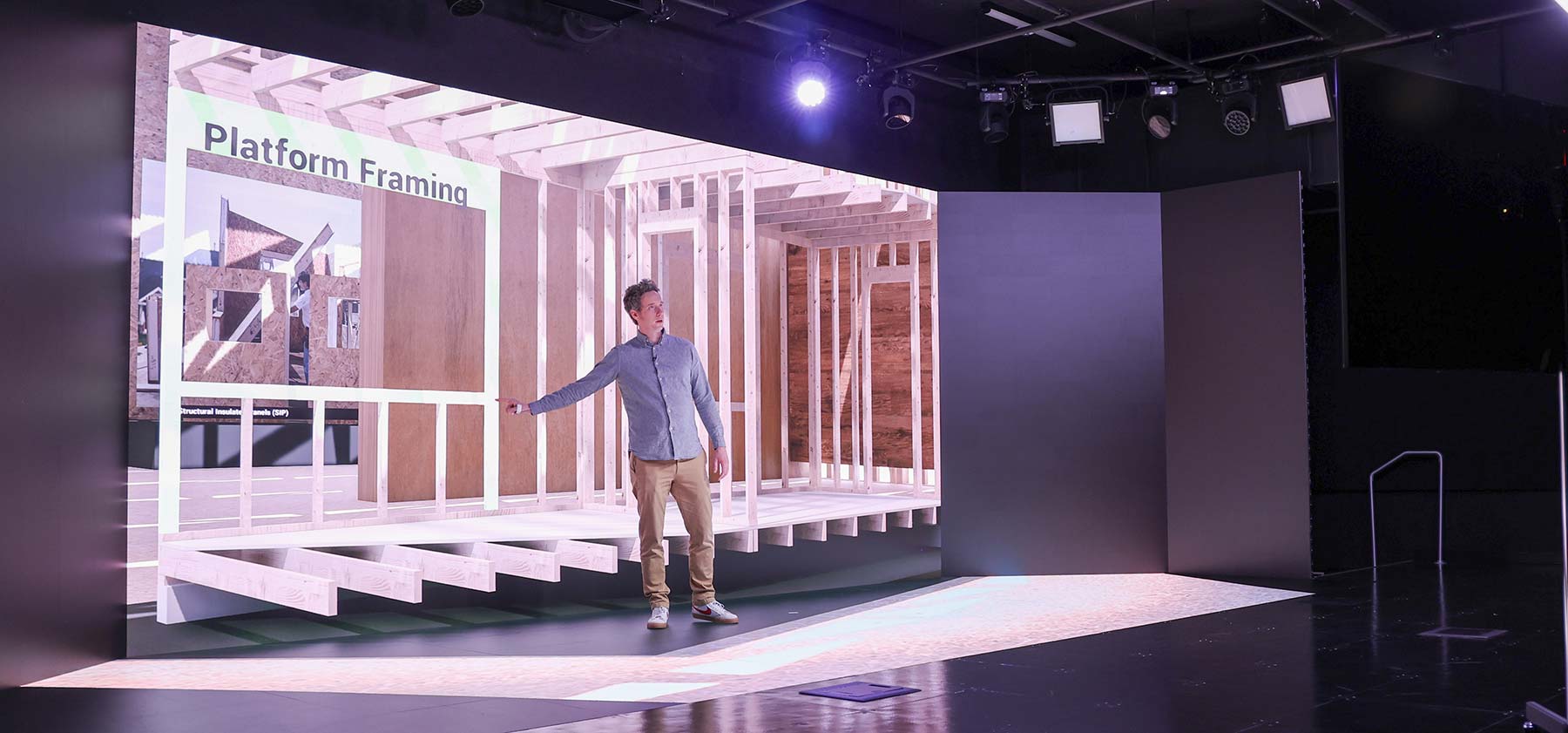By Julie Halpert
Growing up in an affluent, primarily white neighborhood that borders Detroit, Janell O’Keefe witnessed one of the starkest city/suburb divides in the country. She recalls becoming aware of the situation when she was in middle school, not understanding why people who looked more like her lived on one side of the border and those who did not lived on another. She’s grateful for the privileges stemming from a financially comfortable household, a quality education, and life in a safe neighborhood. But she remained troubled that just a few blocks away was an abundance of vacant homes.
“A safe neighborhood shouldn’t be a privilege,” she says.
O’Keefe, M.U.P./M.S.W. ’11, has spent the bulk of her career trying to address the systems that enable these fault lines. “So many of our current real estate and land use policies and systems create and perpetuate inequity,” says O’Keefe, who is also a licensed realtor in the state of Michigan. As the program officer for Michigan initiatives at the Center for Community Progress, she works with communities to help them change their systems in order to address and prevent vacancy. “It is a key puzzle piece in getting to a place where everyone lives in an equitable community with real opportunity,” she says.
Places suffering from large-scale vacancy are often historically redlined communities, typically populated by people of color who experience other inequities like lack of access to nutritious food, clean air, and healthy drinking water. The Center for Community Progress works with the key policy tools that can reduce vacancy, like strategic code enforcement, property tax systems, land banking, and vacant land reuse and management. Land banks, for example, can be a tool for returning properties to marketability by eliminating title liabilities and transferring them to new owners. With the appropriate equitable, effective, and efficient policies and systems in place, the goal is that everyone can live in communities where they can be safe, be healthy, and thrive, O’Keefe says: “We want people to live where vacancy is no longer a problem, where kids walking home from school aren’t worried about the empty house next door.” The related goal is that residents lead the way in reforming their neighborhoods. “Community Progress is focused on giving people the knowledge and resources that they need to affect change,” O’Keefe adds.
O’Keefe previously worked for Keep Growing Detroit, an urban agriculture organization she co-founded, where she supported gardeners and farmers in land acquisition and navigating local zoning policy related to urban agriculture. Additionally, she worked for the U-M School of Social Work Technical Assistance Center, and while there, she worked with Peter Allen, a U-M lecturer, to develop Real Estate Essentials, a course that taught Detroit residents the basics of real estate development so they could become developers in their neighborhoods. Now known as Better Buildings, Better Blocks, the program won a $150,000 Knight Cities Challenge grant in 2017, which allowed O’Keefe to transition the program to Building Community Value, a Detroit-based organization, and for them to take the program to scale. O’Keefe currently serves as a technical adviser, along with three other Taubman College alumni. To date, more than 300 Detroit residents have participated; many are buying houses on their blocks and living in or renting them. “It’s inspiring to see how people have leveraged the knowledge,” O’Keefe says.
O’Keefe believes that as a person with privilege, it’s her responsibility to speak up and elevate the voices of others: “White people created and perpetuate these issues. It’s our responsibility to help dismantle them.” She’s intent on using the “fantastic education” that she received “at one of the best universities in the world” to help others who don’t have the same opportunities.
After living for several years in Detroit, today O’Keefe lives in a suburb that is 91 percent white — not as diverse as she would like. But, she says, “I am probably more useful living in a place with white people who don’t always think like me than I am in a place with more like-minded residents.” She points to a local initiative to fund transportation systems; it passed in her county by only 23 votes, including hers.
O’Keefe recognizes that addressing racial inequity is a big and complex problem and says that the planning field as a whole “still has a lot to grapple with when it comes to equity.” She sees her professional contribution continuing to be centered on vacant property. “This is where my passion and skills intersect. I feel fortunate that intersection involves work that can help make life more equitable for everyone.”





